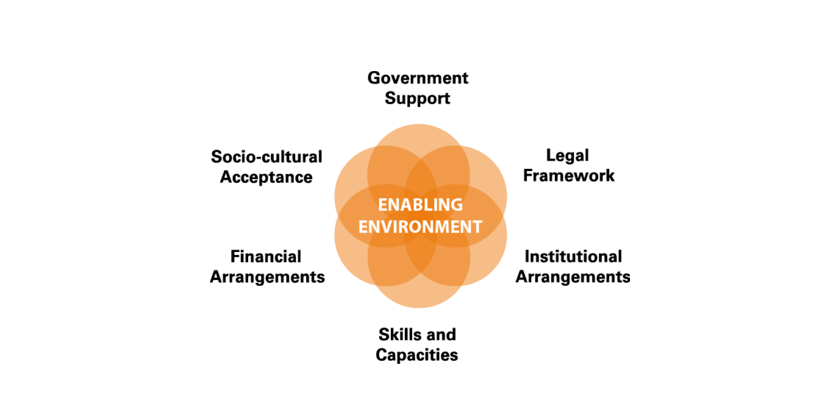Department Sanitation, Water and Solid Waste for Development
Enabling Environment for Sustainable WASH Interventions

Progress in providing access to sanitation in low- and middle-income countries has been slow. In many countries, demographic growth outweighs any progress that has been made, despite the billions of dollars poured into the WASH sector. For example, much infrastructure is not adapted to its specific context and/or is not sustainable, thus, failing to serve the population properly in the long run. The conventional approach in sanitation provision in these areas has clearly failed to reach large (and often most) parts of the respective populations. Major barriers to progress in sanitation coverage lie within the institutions, policies and socio-economic realities of low- and middle-income countries. The dearth of pragmatic solutions to the need for quick increases in sanitation coverage is mainly due to the lack of an enabling environment to develop more realistic, cost-effective plans. The SESP Group characterizes the “enabling environment” as comprising the following six categories: (i) Government support, (ii) Legal and regulatory framework, (iii) Institutional arrangements, (iv) Skills and capacity, (v) Financial arrangements, and (vi) Socio-cultural acceptance.
The SESP group is doing applied research and providing support and capacity development to organisations dealing with assessments and the fostering of enabling environments. This includes prioritising the identification of enabling/disabling conditions during the initial assessments, and addressing them throughout the planning process. This integrated approach is understood and promoted by the SESP Group as the key to successful water and sanitation projects and programmes.
